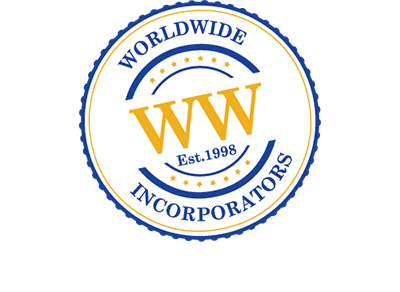COVID-19 UPDATE: Worldwide Incorporators Ltd. is considered an essential business and is currently open and operating. No walk-ins will be accepted at this time. For more information, please call (302) 477-0500.
We're Moving on November 20th to Our New Location at: 1521 Concord Pike, Suite 201, Wilmington, DE 19803
Blog

30 Jun, 2020
By: LeAnn and Kate Small business owners- fear not if you have these common concerns – you're not alone. We wanted to provide some resources and address some common SMB concerns. As the US has begun to re-open business in phases, non-uniformity among the regions is adding a layer of complexity to their challenges. Some states need to go so far as to pause reopening during what could be considered a second wave of the pandemic (according to HuffPost). That being said, it’s important new businesses, and companies re-opening their doors, all account for their individual state guidelines as they tackle other common challenges: How can I keep my employees & their families safe? As walk-in traffic increases without a vaccine yet available, many small business employees are concerned about endangering themselves, or their families, with increased exposure. For all businesses, it is recommended to put in place a “COVID-19 business cleanliness plan” in terms of workplace sanitation. It is incumbent upon businesses, throughout each stage of re-opening, to clearly communicate and enforce new safety standards. The CDC has created some helpful free training videos on PPE here , as well as a guide for small business preparation here . Another good resource was released by the American Industrial Hygiene Association (AIHA) found here . How can I offset possible lower revenue opportunity? Although people are returning to stores and events, they are doing so in smaller numbers which will inevitably impact sales. Small business owners are having trouble making up for lost revenue from earlier months. Once a business has assessed it’s financial state of affairs, they can consider federal and state financial aid resources like disaster assistance loans from the U.S. Small Business Administration application found here, as well as the employee retention tax credit via CARES Act info here . How can I get support with SMB Document retrieval? Small businesses looking for tax, loan, and other business documents are in need of resources to assist during this time. If a small business is facing an urgent need for cash while they wait for decisioning around the Economic Injury Disaster Loan, they could qualify for an SBA Express Disaster Bridge Loan. SBA Bridge Loans info here . Loan forgiveness / PPE loan info here . Feel free to reach out to sales@worldwideinc.com for assistance in obtaining supporting documents you may need. Where can I get updates on the new & changing guidelines? With each state beholden to a different phase of re-opening regulations, and on a different schedule, it makes it hard for businesses to plan ahead and forecast revenue. Business leaders are deliberating over which company policies need to be updated as employees return to work. Individual state government websites are typically up to date with the latest coronavirus-related guidance and regulations referenced via usa.gov here , as well as the IRS’s resource page here . The U.S. Chamber of Commerce has also provided an updated state-by-state outline here . It’s evident that re-opening business doors will be a gradual process, one riddled with re-adjustments. We’re proud to be here to support our clients as they evolve in the post-coronavirus pandemic. References: https://www.sba.gov/page/coronavirus-covid-19-small-business-guidance-loan-resources https://www.uschamber.com/co/start/strategy/coronavirus-employee-retention-tax-credit-guide https://www.uschamber.com/co/start/strategy/small-business-coronavirus-reopening-guide https://home.treasury.gov/policy-issues/cares

By WWInc
•
26 Nov, 2018
All Delaware entities must maintain a registered agent, physically located within the State of Delaware.. A registered agent is an individual or entity who is responsible for receiving vital legal documents or summons, government documents and tax documents. Company structures are complex, so the registered agent ensures that there is a single, legally designated person or entity on public record who can be reached with such documents whenever the need arises. Delaware registered agents are professionals who accept this role for companies who might wish to incorporate in the state of Delaware. Delaware allows a corporation to maintain a physical address or place of business outside of the state. However, the registered agent of a Delaware corporation must still be reachable at an address inside of the state of Delaware, thus creating the need for Delaware Registered Agent services. Businesses often find it advantageous to incorporate in Delaware because Delaware is one of the most business-friendly states in America. Delaware entities offer many advantages. For example, many states require proof that a budding corporation possesses a minimum amount of capital before they will allow incorporation. Delaware has no such laws, offering new companies far more flexibility. Delaware also has fewer shareholder restrictions. For example, a single individual may become the sole shareholder of a Delaware corporation, and may name himself both sole officer and CEO, without losing any of the liability protections that incorporation conveys. There are numerous tax advantages to Delaware incorporation as well. Delaware registered agent services thus represent an affordable business expense that will typically pay for itself in tax savings alone. Worldwide Incorporator’s LTD provides this service and stands ready to help you reap the benefits of incorporation in Delaware. Contact us today!

By WWInc
•
26 Oct, 2018
Choosing your business entity type is one of the biggest decisions you’ll ever make for your company. Generally it’s best to choose at least some form of corporation for the liability protections incorporation conveys. In fact, the Donald Trump University book, Asset Protection, mentions that one shouldn’t so much as let a child set up a lemonade stand as a sole proprietorship or general partnership because those entity forms offer no liability protection at all. Once you’ve determined that your business needs to be a corporation there are three things you should be considering. Your business entity type impacts all three of these issues. The first issue is tax liability. Your legal entity will determine how your taxes will be reported, the tax rate or breaks that you enjoy, and who or what will ultimately be responsible for those taxes. Some corporate entity types, like the LLC, make little distinction between the owner’s personal tax return and the business tax return, whereas a traditional C-Corp files its own taxes and all of its shareholders, employees, and officers likewise file their own personal taxes as normal. The second issue is one of legal liability. This covers any situation in which your company might be targeted by any kind of lawsuit. The legal entity indicates who is ultimately responsible for paying any settlements or awards that arise from such lawsuits. Most corporate entity types exist to create a legal shield for the owners, ensuring that the corporation, and not the business owners or shareholders, absorbs the liability. That means a judge could go after all of the bank accounts and assets in the corporation’s name to pay off debts, but they could not go after the personal bank accounts and assets of any associated owners or shareholders. However, the corporation must generally conform to certain guidelines in order to keep these protections in place. Those requirements are the third issue. Every corporate entity type must meet certain requirements to maintain the protections that the corporation enjoys. For example, a C-Corp must usually file articles of incorporation and elect a board of directors in order to maintain its status. The corporate bank account can’t be used as a personal bank account by anyone involved with the corporation. There are usually annual obligations that must be fulfilled as well. If those obligations are not met the corporation is said to be piercing the corporate veil, which could leave owners, shareholders, and officers of the company personally liable for damages, debts, or settlements incurred in the corporation’s name. Every business is different, and there is no one-size-fits all solution. With 5 types of corporation to choose from (C-Corp, S-Corp, Close Corporation, LLC, and Non-Profit) it is a good idea to consult with an attorney or tax professional before making your final decision. For additional information about each type of entity structure, who they are ideal for, the advantages and disadvantages, check out this article by the "entrepreneur's lawyer" Scott Edward Walker of Walker Corporate Law - http://www.quicksprout.com/2010/03/31/beginners-guide-to-corporate-entities/#comment-141709

By WWInc
•
25 Sep, 2018
50% of all publically traded companies and 60% of all Fortune 500 companies incorporate in Delaware. There are many reasons why corporations absolutely love incorporating in Delaware. Here are some of the benefits. The Court of Chancery The Chancery Court is a big draw for many companies because it relies on judges, not juries, to make decisions. Juries are often thought of as dangerous, expensive wildcards. The Court of Chancery also reduces litigation because the judges write their judges as published opinions. Professional advisors then work out deals based upon those opinions, which means that few Delaware companies find themselves locked up in litigation. Maintain Privacy A skilled asset protection professional will tell you that privacy is half the battle. Delaware corporations enjoy unprecedented privacy levels. There is, for example, no requirement to list the names of directors or officers on the formation documents. Maintain Control Most corporate structures require you to lose a large degree of control over your start-up because you are forced to appoint shareholders, officers, and directors who may have a different vision than you do. In Delaware, you can become the sole officer, director, and shareholder of your start up, and no additional people are required. Cost-Effective Incorporation in Delaware is extremely cost-effective. At $89 they have the lowest fees. They also have zero capital minimum requirements, where most states have a capital minimum of at least $1000. Delaware allows you to hit the ground running even before you’ve secured funding. Business-friendly Taxes Delaware has the most business-friendly taxes you’re likely to find. Delaware levies no personal property tax, no intangible property tax, and no sales tax against Delaware corporations. Is it Right for You? Delaware incorporation certainly conveys many benefits, but it’s not right for everyone. Contact us today to discuss whether or not Delaware incorporation is right for your business.

By WWInc
•
21 Aug, 2018
Setting up a corporation can be a complex process, so it’s little wonder that people make mistakes while doing it. Here are five mistakes that people often make. Failing to Obtain Tax Advice The structure of your corporation and the location of your corporation will both have an impact on how much taxes you pay and to whom you will pay it. Before rushing into a structure you should always consult with professionals to find the most advantageous tax scenario for your business. Failing to Complete and Obtain Proof of Documents and Filings If you can’t produce the documents then your corporation doesn’t exist. Keep careful records so that you can produce those records in case of any challenge to your company. You should also get guidance that will help you navigate the paperwork correctly: the requirements are different for every company and in every state. Forgetting to Obtain Licenses Many businesses require licenses to operate in their chosen states. Some do not. You’ll want to do a state license search to see if yours does. If it does, the mere act of incorporation does not take care of this detail. You will need to take the appropriate steps and pay the appropriate fees to do business legally. Failing to Understand Annual Requirements Most every type of business entity comes with some form of annual maintenance requirements. Sometimes you are only required to file changes. Sometimes you have to file annual reports, minutes of board meetings, and other important documents. Understanding your requirements clearly and working with a company who can explain how and when to meet them is a vital part of incorporating safely. Forgetting to Obtain a Registered Agent If you incorporate outside of your home state then you will need to designate a registered agent who maintains an address in that state. The registered agent’s responsibility will be to accept legal documents and government documents on your behalf. You can often do this through the use of a trustworthy registered agent service. We can help you incorporate without making costly mistakes. Contact us today!

By WWInc
•
02 Jul, 2018
Starting a new business is a big investment of both time and money. As you write your business plan and think about taking the plunge, here are five things that you should be asking yourself. Do I Know Enough about the Industry? Want to start a restaurant? Go work in one. Don’t start a car repair business if you’ve never picked up a wrench yourself. Though you may plan to hire employees in the future, you’ll still occasionally have to pitch in yourself while the business is young. It’s also difficult to select employees or train them if you don’t know anything about the work you’re trying to have performed. If you absolutely want to start a certain kind of business then go to work for a similar business, even if you have to volunteer to do so. Learn about vendors, common problems, procedures, and skills. Find out about the customers. See, first hand, what’s being done well, and what isn’t. It will give you invaluable resources for creating a strong business later. What’s my Risk Tolerance? Obviously you could lose a lot of time and money on your business venture. What’s your risk tolerance? If you don’t recognize starting a new business as a risk then you might be bitterly disappointed later. Of course, you should not be taking reckless risks. By the time you finish your business plan you should have a solid base of research about the opportunity, the customers, and the product that you plan to offer, but nothing is guaranteed. What are your Goals and Expectations? Some people go into business to make a million dollars. Others just want the freedom. Others still are out to passionately create something new. It’s important to think about whether the business is going to be capable of living up to your goals and expectations. For example, a corner car wash might make you a solid, middle class income but it’s unlikely to make you that first million dollars. On the other hand, a million dollar business might not offer much time or freedom. Is there a Market for your Product or Service? Will it be Profitable? A smart business owner does multiple viability studies to determine whether or not the business will actually work. It takes extensive research and testing to ensure that enough people will be interested in your product to buy it, and that you’ll be able to offer it at a price point capable of supporting your costs. There are numerous resources to help you make these determinations. You should also be making a thorough survey of your competition. What Business Structure Will you Adopt? Adopting the wrong business structure could have a negative impact on your company’s ability to grow, to get funding, or to navigate complicated tax concerns. It’s a good idea to consult with an accountant and an attorney before you make the final decision. Once you have done so you’ll need professional help to make sure that all of the proper legal requirements are fulfilled. A mistake in the paperwork could mean that you don’t receive the protections of your chosen business structure.

By WWInc
•
18 Jun, 2018
Love Facebook or hate it there’s no denying that it’s had a significant impact on the world. It has brought family members closer together, reunited old friends, become a platform for business and a stomping ground for controversy. Here’s what billionaire founder Mark Zuckerberg has to teach us about success. #1: First Things First Zuckerberg stresses solving the most important problems first. In numerous interviews he has pointed to a tendency among many companies to focus on putting out tiny, irrelevant fires until there’s no room to handle the truly important issues. However, when you focus on the big ideas the smaller problems tend to resolve themselves. #2: “Move Fast and Break Things” Zuckerberg says that if you’re not breaking things you’re probably not moving fast enough. Today’s business landscape is one of constant flow and change. Ideas, products, and innovations become obsolete in a matter of just a few short years. If you’re not moving fast you risk being left behind. #3: Don’t Be Threatened by the Competition Some businesses spend a lot of time studying the competition and deciding how to either outmaneuver them or emulate them. But Zuckerberg warns that a “me too” mentality is the death of many businesses. Worry about doing what you do well, and let the competition take care of itself. #4: Take Risks Like many billionaire college drop-outs Zuckerberg stresses the importance of taking risks. If you’re not failing at something you’re probably not trying anything interesting. If you’re not trying anything interesting you are almost certainly failing. #5: Find Great People to Execute Your Vision Recruiting great people and treating them well should be at the top of your list. Try as you might you can’t build a billionaire’s empire all by yourself. Sources http://smallbusinesshub.co.nz/Top%20Business%20Tips%20from%20Facebook%20Co-Founder%20Mark%20Zuckerbe... http://www.dpin.org/the-advice-of-mark-zuckerberg-to-do-business.html http://www.webteacher.ws/2013/01/08/review-think-like-zuck-the-five-business-secrets-of-facebooks-im...





